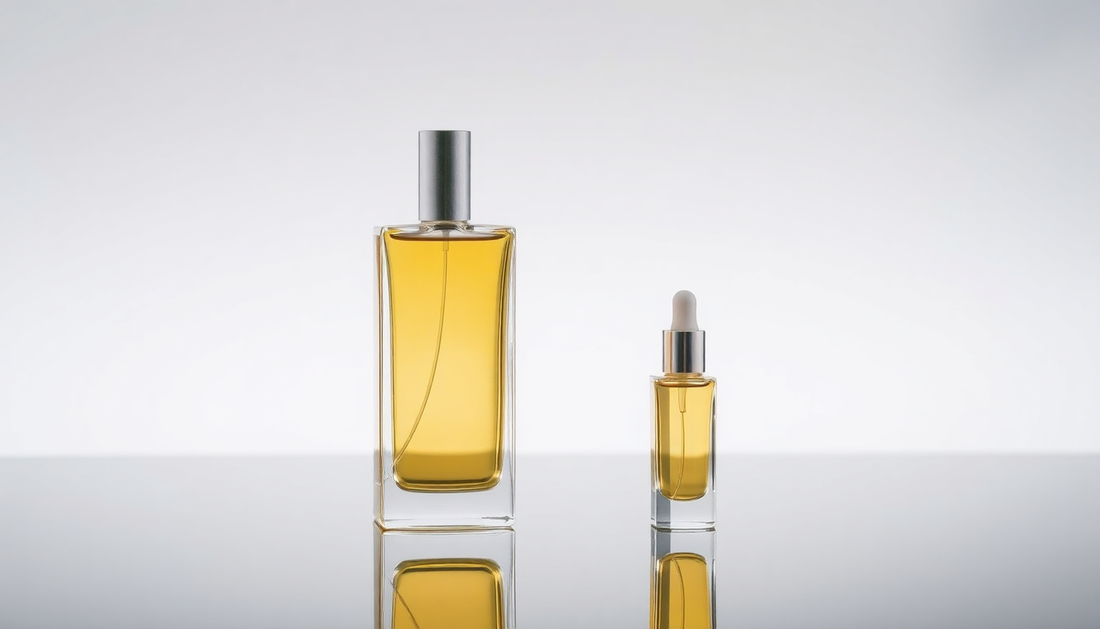
Is Perfume Oil Better Than Perfume?
Share
In the world of fragrance, there's an ongoing debate about the merits of perfume oils versus traditional perfumes. As the owner of Samad Fragrances, I've had the privilege of helping countless customers discover the joys of high-quality perfume oils. In this blog post, I'll explore the key differences between these two fragrance formats and why perfume oils may be the superior choice for many.
The Composition of Perfume Oils and Perfumes
At the most fundamental level, perfume oils and traditional perfumes differ in their composition. Perfume oils are typically made up of a higher concentration of essential oils and natural fragrance compounds, often derived from plants, flowers, and other natural sources. These oils are then blended with a carrier oil, such as jojoba or almond oil, to create a long-lasting, highly concentrated fragrance.
In contrast, traditional perfumes are typically composed of a lower concentration of fragrance compounds, which are then diluted with alcohol and water. While perfumes may contain some natural ingredients, they often rely more heavily on synthetic fragrance molecules to achieve their desired scent profiles.
The Longevity of Perfume Oils
One of the key advantages of perfume oils is their superior longevity. Because of the higher concentration of fragrance compounds, perfume oils tend to last much longer on the skin than traditional perfumes. Whereas a sprayed-on perfume may fade within a few hours, a well-chosen perfume oil can linger for the entire day, or even longer.
This longevity is particularly beneficial for those who prefer a more subtle, yet persistent fragrance. Perfume oils allow you to enjoy your favorite scent without the need for constant reapplication throughout the day. This can be especially useful for busy individuals who don't have the time or desire to constantly reapply their fragrance.
The Intensity of Perfume Oils
In addition to their longevity, perfume oils are also known for their intense, concentrated scents. Because they contain a higher percentage of fragrance compounds, perfume oils can often be experienced as more potent and impactful than their traditional perfume counterparts.
This intensity can be a double-edged sword, as it requires a lighter touch when applying perfume oils. A little goes a long way, and it's important to avoid over-applying to prevent the scent from becoming overpowering. However, for those who enjoy bold, long-lasting fragrances, the intensity of perfume oils can be a major selling point.
The Versatility of Perfume Oils
Another advantage of perfume oils is their versatility. Unlike traditional perfumes, which are typically designed for a specific gender or occasion, perfume oils can often be worn by anyone, regardless of their gender identity or the event they're attending.
This versatility allows customers to explore a wider range of scent profiles and find fragrances that truly resonate with their personal preferences and style. Whether you're looking for a fresh, floral scent for a summer day or a warm, spicy fragrance for a night out, perfume oils offer a diverse range of options to choose from.
The Skin-Nourishing Benefits of Perfume Oils
In addition to their fragrance benefits, perfume oils can also offer skin-nourishing properties. Many carrier oils used in perfume oil blends, such as jojoba and almond oil, are known for their moisturizing and conditioning effects on the skin.
When applied to the skin, perfume oils can help to hydrate, soften, and even soothe the skin, providing an added layer of benefits beyond just the fragrance itself. This can be particularly appealing for those with dry or sensitive skin, who may find that traditional perfumes can be drying or irritating.
The Sustainability of Perfume Oils
In an era of growing environmental consciousness, the sustainability of our products has become an increasingly important consideration for many consumers. Perfume oils, with their focus on natural, plant-based ingredients, can often be a more sustainable choice than traditional perfumes, which may rely more heavily on synthetic compounds and alcohol-based formulas.
By choosing perfume oils, customers can support businesses that prioritize the use of renewable, ethically sourced ingredients, reducing their environmental impact and contributing to a more sustainable fragrance industry.
